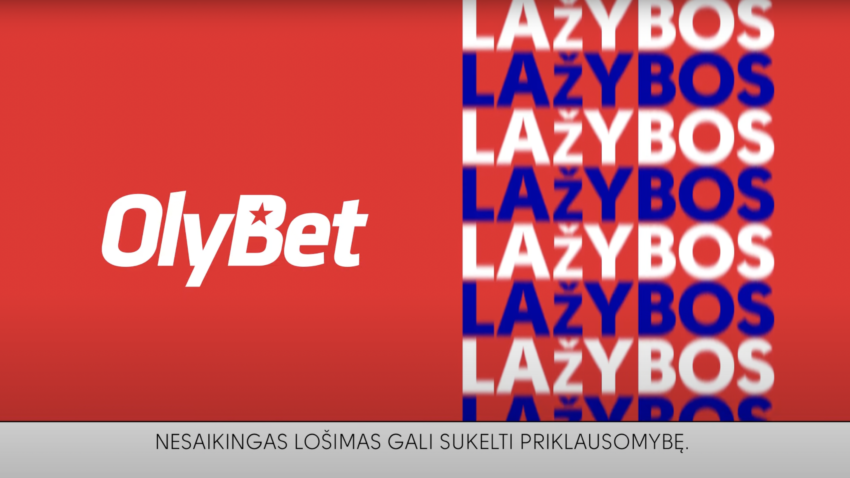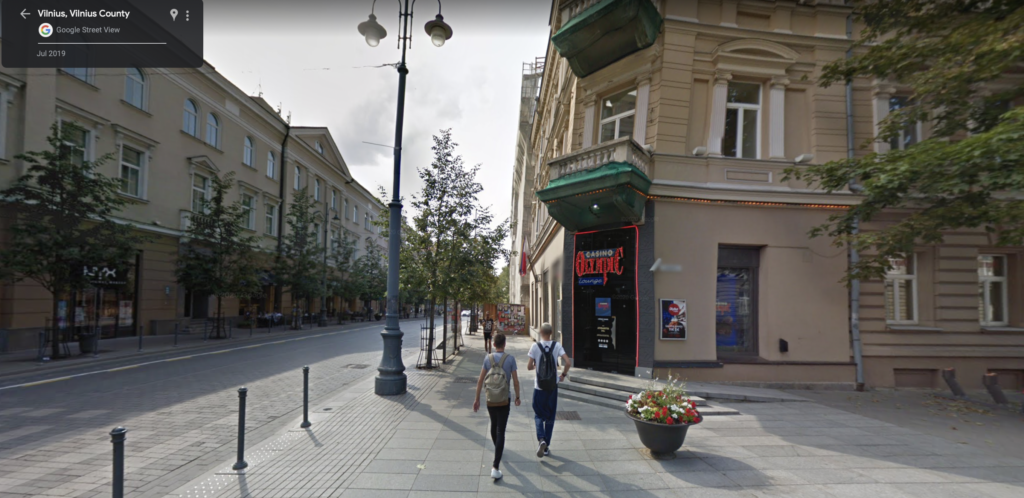Why Lithuania’s Gambling Commercials Are So Annoying

Sometime in the past year or two, I started noticing some really annoying advertisements on YouTube. These ads would repeat one word or one name over and over again in strange voices – or some variation of this. None of these ads had background music or even video footage of anything… it was all just text.
If you haven’t yet experienced it, you can watch the companion video to this article, which includes examples.
At first, I thought this was just one company being really creative and trying to do something different. But, over the many months of seeing these adverts show up repeatedly from several different companies (before all sorts of YouTube videos) I began to wonder what the deal was.
Just targeting certain individuals?
Initially, I wanted to simply know why there were so many adverts for gambling. I don’t gamble, and I’ve never played anything at a casino or even online. I’ve never had an interest in it, and I’ve never gone to any kind of gambling website. If I had done any of this, I would have assumed that adverts were tailored to my internet profile (through cookies and all that). But it was rather strange that I kept seeing these over and over again despite having zero interest in gaming.
I think the prevalence of these ads, combined with seeing a few gambling sites across Vilnius – and also in other towns across Lithuania, made me think that maybe gambling is a popular thing to do in the country.
Or perhaps it’s not that popular, but people who gamble spend a lot of money, and so it’s simply a very profitable industry…
But in my search for answers on the topic, someone informed me of the reason WHY Lithuania’s gambling adverts are so annoying and repetitive – and it actually has to do with government regulation!
Government rules around advertising gambling
According to the Lithuanian government, the regulation related to gambling advertising goes like this:
- It’s prohibited to advertise gaming in Lithuania, except for the names, trademarks of the companies operating games, and, types of games operated.
- The publication of advertising may not include any additional written, visual or audio information.
- And, the Publication of the advertising must be accompanied by a warning notice that participation in gaming may lead to gaming addiction or pathological gaming.
- It’s also prohibited to publish any information related to gaming on websites intended for persons under 18 years of age.
The point about having a warning notice is why the end of every ad sounds like an American pharmaceutical advert – with a sped-up voice reading out a disclaimer. It’s usually something like this:
“Nesaikingas lošimas gali sukelti priklausomybę.”

Because the government regulation around gaming adverts is fairly recent, you’ll actually find older ads on YouTube from the same Lithuanian companies which have, let’s say, a little more “life” to them. AND you’ll also find the same companies showing more regular commercials to our Baltic neighbors – Latvia and Estonia.
Opposition to government regulations
Unsurprisingly, some people in the gaming industry have a problem with this. In August 2022 an opinion piece was published by iGB, a gaming-industry group.
The piece was titled “Marketing madness in Lithuania” and it complained about the inconsistency and lack of clarity on the advertising rules set out by Lithuania’s Gambling Supervisory Authority. The author of this article then lists a few examples of enforcement action based on a lack of clarity around the law.
- In August 2022 Betsafe was hit with a €25,000 fine after it distributed a newsletter about an online game to 10,430 people. In its findings, the regulator stated that the newsletter purposefully promoted the game by including references to its features.
- In May 2022, Olympic Casino Group was fined for supposedly promoting gambling for text including, ‘Specially selected casino games; play’ on its Oly.Bet website.
- And, finally, earlier in 2022, Enlabs was issued a fine of €11,183 after the government accused it of promoting gambling by sending a terms and conditions email.
So, I guess there is a little bit of controversy over Lithuania’s laws around the promotion of gambling.

But it’s clear that companies have found a way to comply with the laws … while, at the same time, being extremely annoying. Maybe it works for some people?
This whole thing somewhat reminds me of the reason why you’ll only see commercials and posters for NON ALCOHOLIC beers in Lithuania – a clearly creative way of getting around the ban on alcohol advertising.
So – now you know why Lithuania’s gambling ads are the way they are!
What do you think of these? Do they annoy you as much as they annoy me? Let me know what you think by leaving a comment down below!



